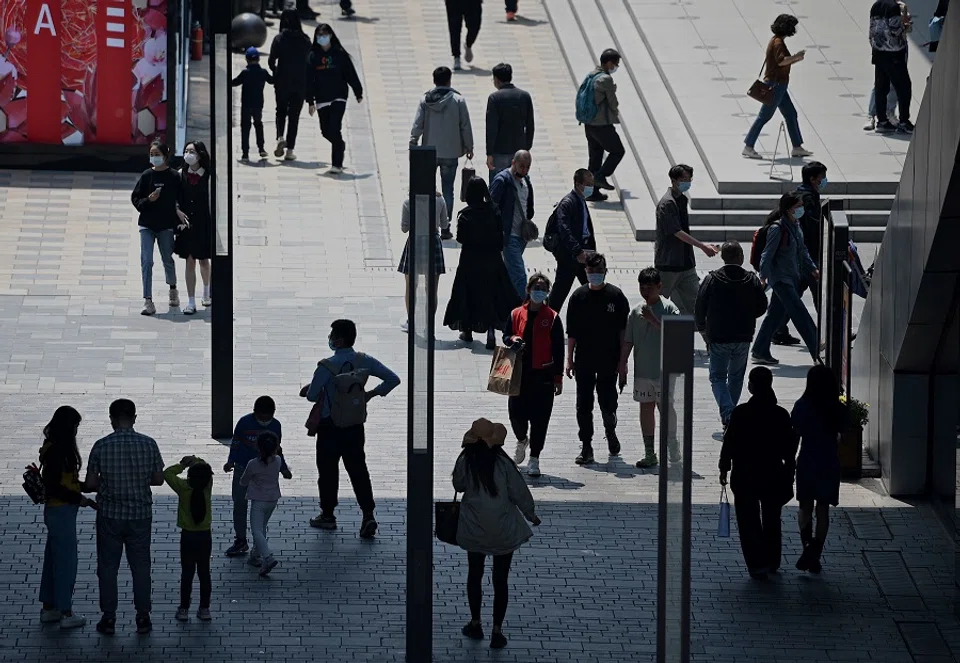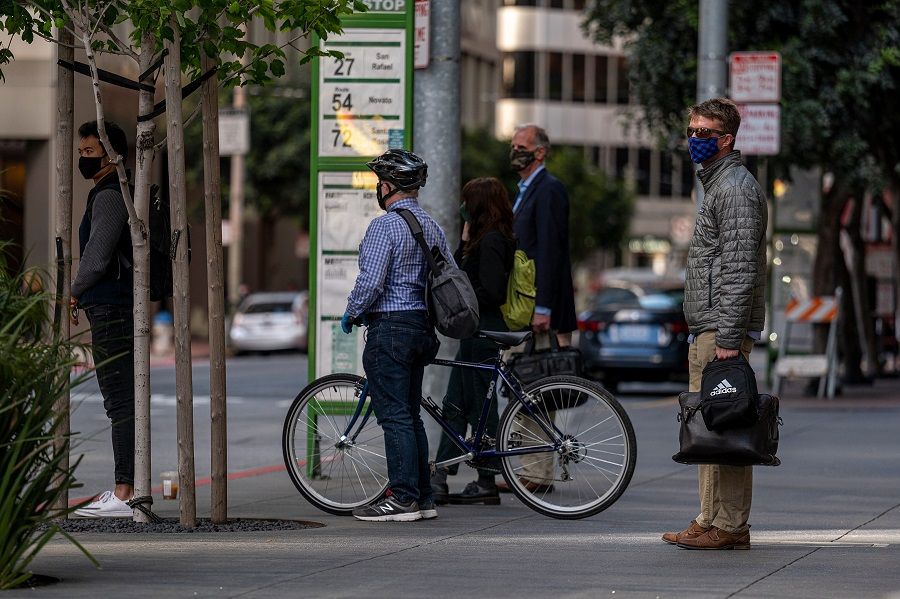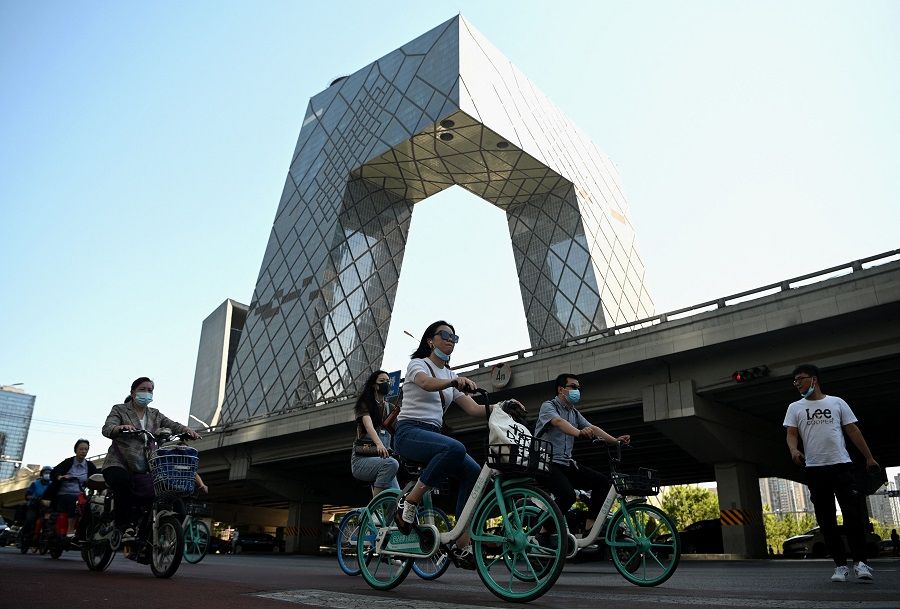New breed of American China experts see China with a colder eye

People born in the 1970s and the 1980s - what the Chinese call the post-70s and post-80s generation - now make up the Biden administration's China policy team and will influence policy for a long time to come. Several of China's academics have published detailed analyses of these China hands. By all accounts, it is evident that the new generation of China policymakers and advocates generally adopt a measured and vigilant attitude towards China.
I think that such analyses, continued attention, and updated observations of the US are necessary and should be strengthened. Furthermore, these Chinese scholars should rid themselves of any complex they may have of the older generation of American sinologists and face the new situation head on.
Chinese sentimentality a flaw?
After years of research, I have come to the conclusion that culturally, the Chinese tend to value relationships more than the Americans, and also reminisce about and cherish the old times more. This characteristic is an important feature of "warmth" in traditional Chinese culture, and can sometimes be exhibited in Chinese diplomacy when the Chinese play the "relationship and emotional" card. In contrast, English culture is more businesslike and legalistic; it is rational, calm and shrewd, focusing on the present and future prospects instead of being sentimental about the past. It is the same in academic research. Great works revered by the Chinese as classics are often seen as outdated in the eyes of American scholars.

The sentimental tendency of the Chinese can likewise be discerned from their attitudes towards the older generation of American China experts from both the political and academic circles. The Chinese deeply appreciate and cherish the warmth and affection that the American old guard have for China, to the point that they would pin their hopes of improving China-US relations and strengthening cultural understanding on them. The passing of such luminaries would often trigger strong reactions and massive commemorations in the Chinese world.
A generation who respected China's grit
The older generation of American China experts is no different from the majority of the US's humanities and social sciences academics. They are generally influenced by left-wing thought from the first half of the 20th century and are sympathetic towards the revolution and modernisation story of China, which they regard as an ancient civilisation in the East. These sinologists also respect the Chinese for the strong fighting spirit they displayed during the Second Sino-Japanese War and the close cooperation they had with the US.
Not long ago, an American even sent me an email with several photographs of his grandfather - a member of the US Air Force based near Chengdu during the Second Sino-Japanese War - hoping that I would help him confirm if one of the Chinese soldiers was Li Zongren, the former acting president of the Republic of China. I compared the photographs and basically ruled out the possibility that the soldier was Li. But I told him that this is why history is so fascinating - back then, my grandfather, an ordinary farmer from Sichuan, had repaired the airbase for the US military near Chengdu.
I raise this example to highlight that interactions and cooperation between China and the US in a specific historical context, and the attention paid by American scholars to the Chinese revolution, are important spiritual sustenance and emotional repository for the older generation of China experts, and also precious memories for a generation of Americans.

In the last century when China was closed off for a long period of time, American China experts firmly believed that in the wave of independence movements sweeping the world after the Second World War, the call for people to rise up during the Chinese revolution went beyond communist ideology and the people were generally following the orders of charismatic leader Mao Zedong. On the other hand, they believed that regardless of political system, China's unique Eastern civilisation would be more approachable than a hostile Soviet Union.
In his book Interesting Times: China, America, and the Shifting Balance of Prestige, Chas W. Freeman Jr., who had served as former US President Richard Nixon's interpreter on his trip to China, wrote: "Two Chinese revolutions in the last century: one in 1911 and one in 1949, were fired by the nation's will to erase the imprint of foreign imperialism on Chinese body and soul, eliminating foreign spheres of influence on Chinese territory..." When it came to the Taiwan question, he argued, "But no nation achieves independence without the agreement from which it is separating. Very often, as in our own case and many others, independence is granted only after years of bloodshed... China's national honour requires some form of end to the division of the Chinese nation, even if symbolically." In addition, he maintained that "Beijing is not at all tempted to recapitulate Moscow's suicidal effort to seek military parity with the United States", because "China focuses on domestic social development and seeks friends and commerce abroad, not enemies or entangling enemies".
Even more left wing
In the 1960s, the US's entry into the Vietnam war triggered a strong anti-war wave. This further gave rise to a new generation of American left-wing sinologists who were even more radical than the generation of "liberal" China experts in the Second World War era. When this group of people furthered their studies, they were even more enamoured with the closed and mysterious China, out of rebellion against mainstream US politics and its propaganda, as well as a concern for Vietnam affairs. As reflected in their writings, while they were ultimately guided by American interests, many of them defended China and even thought of ways to help China sometimes. In addition, among the China experts of the last century, some were born in China to American missionaries and had special attachments to China.
However, such ways of thinking and the people who lived under these specific historical contexts are either gone or marginalised today. Since the late 1970s, a new generation of American China researchers has been able to freely enter China to further their studies, travel, teach, do research, and engage in joint research. At the same time, they witnessed the great achievements of China's reform and opening up and enjoyed the conveniences that came with China's modernisation. But their attitudes towards China have changed. Gone are a sense of justice for colonies or semi-colonies fighting for independence in the first half of the 20th century, the idealism and romanticism of revolutions, and the intellectual and emotional momentum of left-wing thinking that had swept the world at that time.
Just as such passions are dissipating, China is also entering the "post-revolutionary" state of long-term peace and stability. Thus, it follows that American China researchers' attitudes towards China are more measured and pragmatic than before.
Following China's rise and continued prosperity, the factors that once garnered sympathy have now disappeared. China is now mainly seen as a major power and competitor, and not as a somewhat romanticised Eastern civilisation of the past or a suffering nation amid the revolution.

In academia, the 1980s saw the emergence of a powerful postmodernist wave that questioned many precepts and sought to reject modern concepts such as "grand narrative", "nation-state", and "unification" in the American social sciences field. These scholars also began to sympathise with marginalised groups, safeguard the rights and interests of the disadvantaged, and oppose all forms of mainstream thinking. Modern Chinese history after the fall of the Chinese empire along with China's quest to regain power and for unification became objects of scrutiny and criticism, rather than of sympathy and support. In fact, the "New Qing History" branch of scholarship that emerged in the 1990s exemplifies postmodern thought in the historiography paradigm of China scholars in the US.
No more sentimentality
Following China's rise and continued prosperity, the factors that once garnered sympathy have now disappeared. China is now mainly seen as a major power and competitor, and not as a somewhat romanticised Eastern civilisation of the past or a suffering nation amid the revolution. As the times change, the US is now using offence as a form of defence and fighting back to defend itself. This is because it now needs to guard against and contain the challenges that China brings.
In summary, the tendency to focus on the present in American cultural psychology, as well as massive and irreversible changes in the world situation and ideological thought, have made it difficult for the new generation of American China experts to have the same personal goodwill or affection that the older generation of sinologists used to have for China. It is not that the new generation of American China experts lack an understanding of China; and neither do they lack the experience of living in China nor an ample proficiency of the Chinese language. But they do indeed lack some affection and admiration for China, and are mostly unable to identify with China's modern history, its positions and demands.
Each era has its own mainstream ideology and unique set of problems. Observers must recognise this general change and gradually wean themselves off the complex they have for the older generation of China experts who are already historical figures or becoming history themselves. Chinese thinkers must look the post-70s and post-80s generation of American China experts squarely in the eye, appreciate their sociocultural contexts and ways of thinking, in order to understand them better. This is because they are the ones who represent the present and even the future.
Related: Mourning the dearth of China experts in the West with a deep understanding of China | Friends to foes: Matthew Pottinger's Mandarin speech to China and US-China relations | Why do the Chinese behave this way? China's 'middle society' holds the clue | Wang Gungwu: The high road to pluralist sinology
